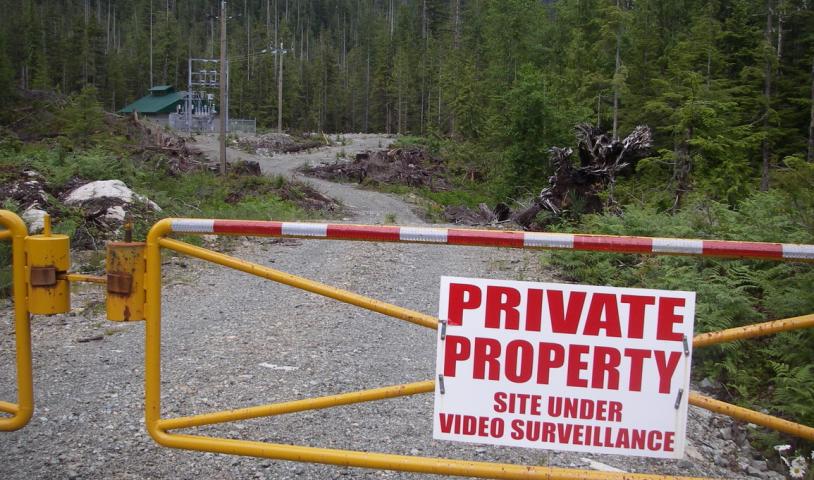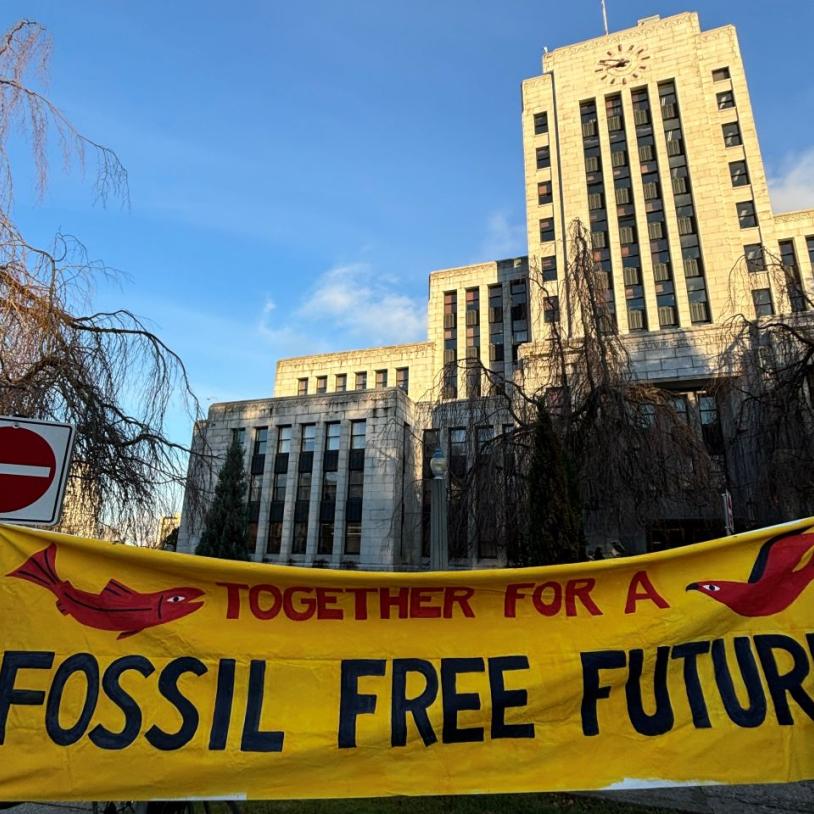B.C. pushes private power projects
Thursday, November 5, 2009
Plutonic Power Corp. CEO Donald McInnes uses words like shocking and mind-boggling when describing this past summer’s B.C. Utilities Commission ruling that B.C. Hydro’s 2008 Long Term Acquisition Plan was “not in the public interest”. The LTAP had leaned heavily on long-term power-purchase agreements with independent power producers, or IPPs, which in B.C. focus almost exclusively on building run-of-river hydro projects.
However, the B.C. Liberals have overturned the 237-page ruling of the province’s independent utility regulator. On October 28, they announced that the gas-powered Burrard Thermal Generating Facility will only be used as a backup and will not be considered for frontline capacity.
On November 2 at the Independent Power Producers Association of B.C. conference at the Hyatt Regency Hotel, B.C. Energy, Mines, and Petroleum Resources minister Blair Lekstrom commended the private industry and said his government will direct B.C. Hydro to proceed with its calls for clean power and bio-energy. At the same conference, Premier Gordon Campbell announced the creation of a Green Energy Advisory Task Force, which will have four different groups examining policy changes to facilitate the development of clean power.
McInnes told the Georgia Straight the government’s deep-sixing of the BCUC ruling provides “better investment certainty in the province” for him and his private-power peers.
“There is going to be a future for companies like Plutonic to spend risk capital to do their feasibility studies, to do permitting work, to try to work with First Nation peoples to get projects to the point where they might be ultimately built,” McInnes said in Plutonic’s Vancouver offices.
McInnes said Plutonic has another 20 projects at various stages of development. He expressed confidence that he can bring those to market.
“Well, 10 years from today, if B.C. Hydro’s growth projections are correct, the province will need an additional 12,000 or so gigawatt-hours a year of new electricity,” McInnes said. “Plutonic would be about 3,500 of that. So, about a quarter of the future growth needs of the province we might be able to meet with our current business plan.”
This is not good news for Gwen Barlee, policy director with the nonprofit Wilderness Committee. Barlee has gone to the wall against McInnes to convince British Columbians his industry will push up the price of power for ratepayers because run-of-river projects can never deliver the dependable energy of a large “integrated public utility” without costs increasing. In his address to IPPBC members, Lekstrom—like McInnes—claimed that the IPPs provide power that is “competitively priced”.
Barlee challenged this by pointing to a March 2009 report, B.C. Hydro Energy Purchases: How Much Is Too Much?, by lawyer Brian Wallace. She said the report shows that B.C. Hydro plans to buy new electricity under its current Clean Power Call at twice the price for which it may end up selling that power on the export market.
“That loss is being passed on to B.C. Hydro, which passes that on to ratepayers and taxpayers,” Barlee said. “If we continue down this path, it is really going to impact the viability of B.C. Hydro. That’s such a crazy, crazy thing to do when we have a Crown corporation that has served the public good and is producing low-carbon electricity in a manner that has benefited the public for many generations.”
Alongside the economic arguments, Barlee said, the IPPs have a devastating cumulative environmental impact provincewide. She has vowed to continue the fight against them.
“We have a responsibility to do that,” she said. “I mean, good campaigns are long campaigns. You saw that with Clayoquot [Sound]. You saw that with the Elaho [Valley]. It’s a variety of campaigns and you don’t win them overnight. When you have the potential environment impact on hundreds and hundreds of creeks and rivers across British Columbia—and people legitimately and justifiably extremely concerned about what is happening with turning over creeks and rivers to the likes of General Electric—then, yes, the Wilderness Committee is going to continue to bring this to the public’s attention and to demand higher environmental standards and to continue calling for a moratorium. It’s the right thing to do.”
In a decision posted on-line on October 23, the B.C. government rejected a proposal to build a run-of-river power project on Fries Creek, near Squamish. The 2005 application by Second Reality Effects Inc. was for a licence of occupation to build a project over 394.35 hectares along the creek.
Independent producers supply energy
> Active electricity-purchase agreements between B.C. Hydro and independent power producers (IPPs): 90
> IPP projects in operation: 50
> Sites with potential to be developed as run-of-river projects: 8,242
> Domestic electricity load provided by IPPs in 2009 fiscal year: 14 percent
> Energy supplied by IPPs during 2009 fiscal year: 8,374 gigawatt-hours
> Energy expected to be supplied by IPPs in 2012 fiscal year: 11,880 gigawatt-hours
> Energy that Burrard Thermal is capable of producing in one year: 7,050 gigawatt-hours
Source: B.C. Hydro
What role should private power companies have?
Tzeporah Berman
“As long as there are strict guidelines to ensure environmental responsibility and private power companies are required by social contract to sell the power that they’ve produced back to B.C. Hydro, then they should be building clean energy projects and providing job opportunities to British Columbia.”
Steve Lawson
“I honestly don’t think it has a place—only for very small, almost household applications. Otherwise, the risk of giving away our rights and the control of our watersheds—they’re so important to the life of the land—privatizing it is kind of the first chink in the armour, the foot in the door.…They’ve proven to be extremely harmful to the environment, to the whole system, and I just don’t think they deserve a place anywhere.”
Naomi Devine
“Private power, I think, definitely has a role in British Columbia. Because of the time frame that we’re looking at, we need to scale up the amount of renewable energy that’s supplied to the B.C. grid in a short period of time. I think that independent power is part of the mix.”
Hadi Dowlatabadi
“Why would you ask for independent power production? You would ask for it when the independent power producer has more technical skill than you have; you would ask for it when they have access to capital when you don’t; you would ask for it when they might have access to the resource base that you don’t.…I don’t believe that is true in any of the examples that we’ve actually tried to exercise in B.C.”
Melissa Davis
“We think none. And that would be the position of our organization and chiefly because—just to keep this in its most simple form—we think that private-power principles are antithetical to conservation objectives, that they are defined in principle by profit. And profit is measured in this case by consumption of energy. So we think that their green ideology is really just lip service.”





